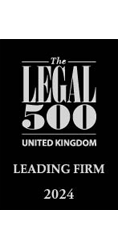No doubt you have heard enough about the new GDPR rules to abide by, as well as the updates you need to make to your internal policies and procedures to be compliant.
We hope, by now, that you have completed that task and that those changes have been smoothly incorporated into your daily routine.
Unfortunately, a new wrinkle has arisen which might need you to reconsider everything that you have previously heard.
Disclosure
For those individuals and businesses that are used to litigation, you will be familiar with the disclosure process.
For those not familiar with the process, disclosure is a phase in litigation which essentially spans the entire lifecycle of a dispute and involves every party to a dispute having to collate, review and then exchange documents with their opponent(s). The scope of disclosure has historically included any documents which support or undermine a party’s case. In practice, parties have often provided large quantities of irrelevant documents as a tactical move to try to “hide” the documents which most hurt their case.
The disclosure process can be one of the most expensive phases of litigation and can absorb hundreds of man hours both internally within a business and externally through legal advisors and professional disclosure experts.
Disclosure Pilot Scheme
As part of the High Court’s modernisation push, new rules have been introduced to fundamentally alter the disclosure process. The trial period started in January 2019, and these rules apply to the Business and Property Courts (High Court not County Court). This means they will be in force for any commercial business disputes that you commence from now, and in some proceedings which may already be underway.
This pilot scheme has been designed to streamline the disclosure process, reduce the costs of the process overall and, possibly, to limit the animosity between parties when it comes to this phase of litigation – compromise will be the new theme word. The new rules have been enshrined in the Civil Procedure Rules which govern commercial litigation in England & Wales.
If you would like information on the technical aspects of the pilot scheme then please contact your legal advisor but there are a few important aspects that we wanted to highlight for your business processes:
1. Documents: have been given a very wide definition and will now include e-mails, text messages, social media posts and the metadata of electronic documents. Information on computers and mobile phones will also be captured as well as back-up drives and servers. This is a wide reaching range of materials that you needs to consider any time you think you might be involved in litigation.
2. Being “Aware” of a document: A company is deemed to be aware of the existence of a document (whether helpful or harmful) if someone “with accountability or responsibility” within the business for the facts which will be litigated over is aware of the document. That is broad range of individuals and if any of them are aware of the document then it will need to be considered for disclosure purposes.
3. Preservation: parties now have to take reasonable steps to preserve documents which may be relevant to any issue in a dispute. This means that parties need to stop any document destruction processes and make sure that all staff are aware of the need to preserve relevant documents, even before all the issues in a dispute are actually clear.
4. Former employees: there is the potential that a former employee who was in a position of responsibility within the business is covered by the new rules including those about preservation of documents (if they leave the business with any) and being “aware” of documents.
Some of these rules expressly conflict with GDPR provisions, including to destroy documents. It is very likely that the disclosure rules will be deemed to take precedence over the GDPR rules so if your business is aware of any issue that might lead to High Court litigation then it is essential to take steps to preserve information immediately. Any delay could be very harmful to your case.
If you have any questions then please feel free to contact the commercial litigation team here at Teacher Stern.






